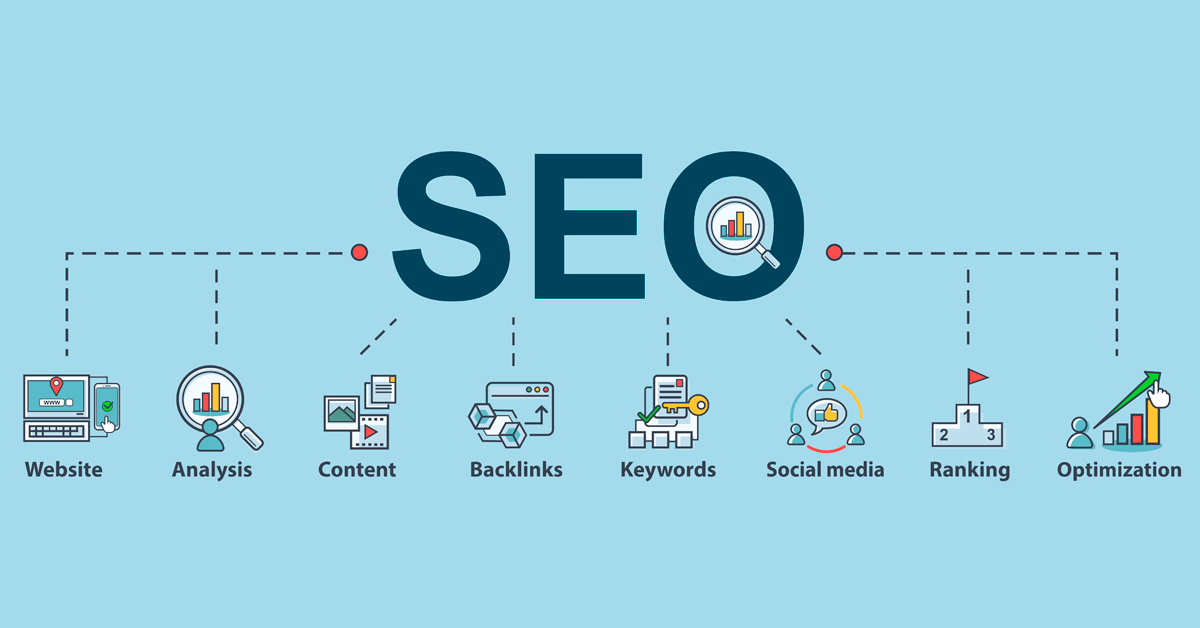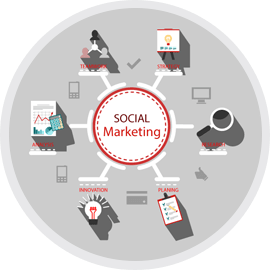SEO stands for “search engine optimization.” It’s the practice of increasing both the quality and quantity of website traffic, as well as exposure to your brand, through non-paid (also known as “organic”) search engine results.
Despite the acronym, SEO is as much about people as it is about search engines themselves. It’s about understanding what people are searching for online. The answers they are seeking and the words they’re using. In addition to the type of content, they wish to consume. Knowing the answers to these questions will allow you to connect to the people who are searching online for the solutions you offer.
If knowing your audience’s intent is one side of the SEO coin. Then delivering it in a way search engine crawlers can find and understand is the other. In this guide, expect to learn how to do both.
Search engine basics
Search engines are answer machines. They scour billions of pieces of content and evaluate thousands of factors to determine which content is most likely to answer your query.
Search engines do all of this by discovering and cataloging all available content on the Internet (web pages, PDFs, images, videos, etc.) via a process known as “crawling and indexing,” and then ordering it by how well it matches the query in a process we refer to as “ranking.” We’ll cover crawling, indexing, and ranking in more detail in Chapter 2.
Learn more about how search engines work in our detailed guide!
What is a Organic Search Result
As we said earlier, organic search results are the ones that are earned through effective SEO, not paid for (i.e. not advertising). These used to be easy to spot. The ads were clearly labeled as such and the remaining results typically took the form of “10 blue links” listed below them. But with the way search has changed, how can we spot organic results today?
Today, search engine result pages — are often referred to as “SERPs”. They’re filled with both more advertising and more dynamic organic results formats (called “SERP features”) than we’ve ever seen before. Some examples of SERP features are featured snippets (or answer boxes), People Also Ask boxes, image carousels, etc. New SERP features continue to emerge, driven largely by what people are seeking.
For example, if you search for “Denver weather.” You’ll see a weather forecast for the city of Denver directly in the SERP instead of a link to a site that might have that forecast. And, if you search for “pizza Denver.” You’ll see a “local pack” result made up of Denver pizza places. Convenient, right?
It’s important to remember that search engines make money from advertising. Their goal is to better solve searchers’ queries (within SERPs). To keep searchers coming back, and to keep them on the SERPs longer.
Some SERP features on Google are organic and can be influenced by SEO. These include featured snippets. A promoted organic result that displays an answer inside a box. As well as related questions (a.k.a. “People Also Ask” boxes).
It’s worth noting that there are many other search features that, even though they aren’t paid to advertise, can’t typically be influenced by SEO. These features often have data acquired from proprietary data sources, such as Wikipedia, WebMD, and IMDb.
Why SEO is important
While paid advertising, social media, and other online platforms can generate traffic to websites, the majority of online traffic is driven by search engines.
Organic search results cover more digital real estate, appear more credible to savvy searchers, and receive way more clicks than paid advertisements. For example, of all US searches, only ~2.8% of people click on paid advertisements.
In a nutshell: SEO has ~20X more traffic opportunity than PPC on both mobile and desktop.
SEO is also one of the only online marketing channels that, when set up correctly, can continue to pay dividends over time. If you provide a quality content that deserves to rank for the right keywords, your traffic can snowball over time, whereas advertising needs continuous funding to send traffic to your site.
Search engines are getting smarter, but they still need our help.
Whether you are a large enterprise or a small business, optimizing your site will help deliver better information to search engines so that your content can be properly indexed and displayed within search results.
Should I hire an SEO professional, consultant, or agency?
Depending on your bandwidth, willingness to learn, and the complexity of your website(s), you could perform some basic SEO yourself. Or, you might discover that you would prefer the help of an expert. Either way is okay!
If you end up looking for expert help, it’s important to know that many agencies and consultants “provide SEO services,” but can vary widely in quality. Knowing how to choose a good SEO company can save you a lot of time and money, as the wrong SEO techniques can actually harm your site more than they will help.
Written by Brittney Muller and the Moz Staff
What is SEO FAQs
What does SEO stand for, and what is its purpose in online marketing?
SEO stands for Search Engine Optimization. Its purpose is to improve a website’s visibility on search engines like Google, Bing, and Yahoo. By optimizing on-page and off-page elements, SEOs purpose is to rank a website higher in search results, attract organic traffic, and enhance its online presence.
How does SEO work, and what are its main components?
SEO involves multiple components, including:
- Keyword Research: Identifying relevant search terms users use to find information or products.
- On-Page Optimization: Optimizing website elements like titles, headers, and content for targeted keywords.
- Off-Page Optimization: Building high-quality backlinks to establish authority and credibility.
- Technical SEO: Improving website structure, speed, and user experience for search engines and users.
How long does it take to see results from SEO efforts?
The timeline for SEO results varies based on factors like competition, website age, and optimization quality. Generally, it takes several months to start seeing noticeable improvements in rankings and traffic. However, achieving significant and lasting results may take longer, especially for highly competitive keywords.
Cannabis Marketing & SEO in 2022
Post Views: 265 Organic Traffic is Your Best Friend Paid...
Read More5 Tips to Optimize Blog Posts Using SEO.
Post Views: 236 Using SEO and keywords in 2022 is...
Read More




